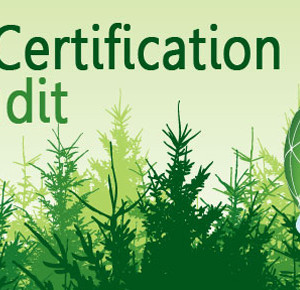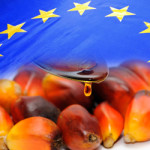Malaysian palm oil industry fights back in light of European challenges
Some of the EU’s basic assumptions and conclusions are wrong.
Palm oil remains the most sustainable, efficient solution.
The Malaysian Palm Oil Council (MPOC) issued one of its most strongly worded position papers yet, aiming to bring more realistic perspectives to European Union (EU) policy measures about the use of palm oil. MPOC is calling for policies based on objective evidence and the complex realities of palm oil production, and warns that current EU recommendations are based on flawed and/or misinterpreted research.
The MPOC position paper, “Building a Sustainable Future Together: Malaysian Palm Oil and European Consumption,” was published in the January 2018 issue of the “Journal of Oil Palm, Environment and Health.” This paper was prompted by the European Parliament’s “Palm oil and the Deforestation of Rain Forests” resolution passed in 2017.
“This paper attempts to portray that the truth behind palm oil is not a simple dichotomy of good versus bad,” said Dr. Kalyana Sundram, the corresponding author of the report. “Rather it is more like the ocean: lots of hidden currents and eddies. Moreover, there is also some ugliness on all sides of the debate which should not be buried under the surface.”
There are no one-size-fits all solutions
The 2017 EU resolution calls for measures to combat deforestation in the tropics as well as the associated effects on climate change and biodiversity. The resolution’s the two main recommendations, to be accomplished by 2020, are:
- The phasing out of palm oil as feedstock for biodiesel
- Switch to 100 percent certified sustainable palm oil
The Malaysian palm oil industry has said and continues to demonstrate that it stands strongly for planet and people. “Malaysia is acutely aware of the environmental challenges planet earth is facing. It considers itself part of the international community that strives to mitigate greenhouse gas emissions, protect natural habitats and pursue patterns of sustainable production and consumption,” state the authors.
“However, we are concerned that the European Parliament and Commission have been misled by false assumptions to pursue a path towards these goals that leads somewhere else: to an outcome that will leave consumer and producer countries as well as the global environment worse off.”
They add, “Our globalized, interdependent world has grown complex. And while the need to protect the world’s ecosystems is surely something we all agree on, there can be no simplistic, one-size-fits-all solutions.”
The MPOC position paper points out, “For years discussions – often heated – have been going on over the impact of palm oil production and consumption on human health and the natural environment.”
However, the issues aren’t as clear as some presume. The paper refers to the Cobra Effect, which is when an attempted solution has the unintended consequence of worsening the problem. For example, other oil crops including soy are much worse deforestation offenders. Some sweeping attempts to protect wildlife and their habitats have backfired. And the science surrounding negative health claims about palm oil, such as its association with an increased risk of coronary heart disease due to its higher saturated fatty acid content, is largely inconclusive and is being debunked by new and emerging scientific evidence on saturated fats as a whole.
Malaysia’s comments on the EU’s two primary goals
Regarding the EU’s primary resolutions, the MPOC position paper states:
- Sustainability Certification: “We emphasize that the realities of palm oil production and trade on the ground are far too complex to be covered by a single European certification scheme. In our view, certification standards must be set and enforced on a national level. That is why we choose to invest heavily in building the Malaysian Sustainable Palm Oil standard (MSPO). On the other hand, we see the concerns the European Parliament has regarding transparency and clarity of different certification standards vis-a-vis the consumer. We, therefore, propose to look for ways to make standards comparable.”
By the end of 2019, Malaysia plans to have 100 percent of its palm oil MSPO certified.
MSPO certification addresses the environmental, social and economic aspects of palm oil production. In addition to protecting forests and wildlife, MSPO is about the cultivation, processing techniques and providing a living wage for everyone employed by this industry, including the 650,000 family farmers (smallholders). MSPO standards include prohibiting deforestation, dictate clear and strong requirements on palm oil industry workers’ health and safety, and encourage biomass recycling and zero-burning practices.
- Biofuels: “The debate over the implications of the so-called “Globiom Report” which applied the concept of indirect land use change to the calculation of the overall greenhouse gas emissions of biofuels has been going on for years without having been settled. In our view, to phase out biofuels on that basis in fact amounts to a violation of the precautionary principle.”
The report goes on to discuss some of the major biofuel vs. fossil fuel concerns, pointing out, “A full evaluation of these factors (incidentally, oil palms undeniably have a non-trivial carbon sink potential) might lead to the conclusion that the alleged cure of abandoning biofuels is worse than the disease.”
MPOC concludes that, “Malaysia is keen to bring its century-long experience, and extensive expertise in all things palm oil to the table. Only working together will make solutions possible that are better for all stakeholders involved, including the earth’s ecosystem.”
Click here to read the entire position paper, or here to read the abstract.










Leave a Reply